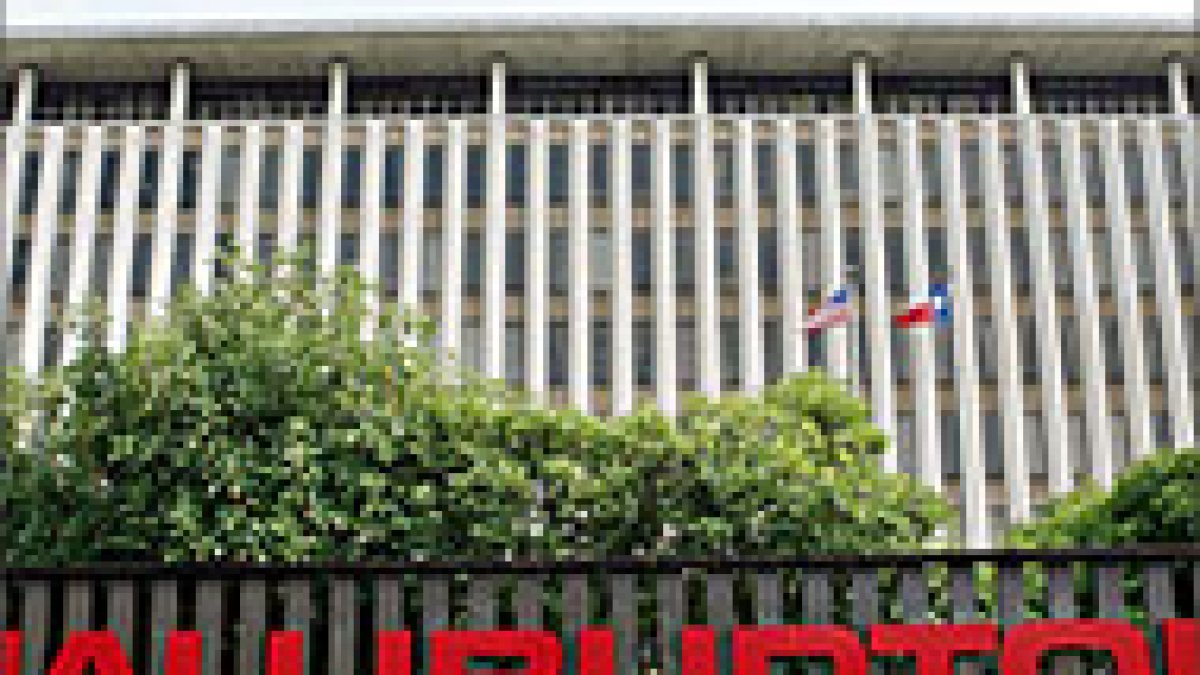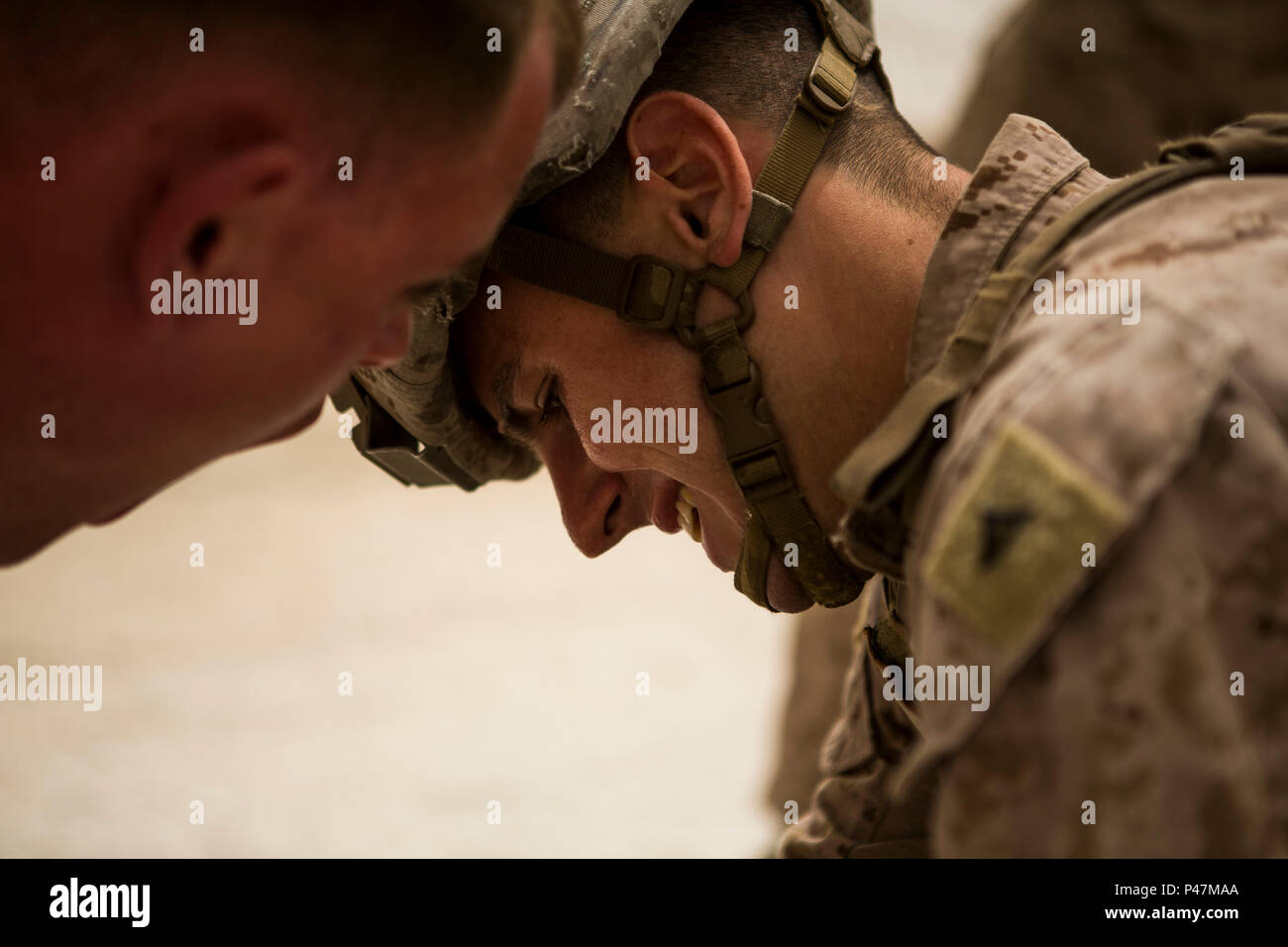Halliburton Military - There are those on the left eager to embrace President George W. Bush simply because he occasionally criticizes Donald Trump.
Remember: the invasion of Iraq was a premeditated fraud on the American people, which was supposed to help and enrich a few even as it led to the deaths of millions and the depopulation of entire regions of the world.
Halliburton Military

Halliburton - once run by former Vice President Dick Cheney - and its spin-off, KBR, have been the largest recipients of the government's largesse resulting from the destruction of Iraq.
Halliburton (hal) Sees Drop In Fracking Earnings In First Quarter
The United States overwhelmingly bore the brunt of military and reconstruction costs, spending at least $138 billion on private security, logistics and reconstruction contractors, which provided everything from diplomatic security to power plants and toilet paper. ... Financial Times analysis reveals the extent to which American and foreign companies have benefited from the conflict – with the top 10 contractors securing at least $72 billion worth of business. No one has benefited more than KBR, once known as Kellogg Brown and Root.
... The controversial former Halliburton subsidiary once run by George W. Bush's vice president Dick Cheney has been awarded at least $39.5 billion in federal contracts related to the Iraq war over the past decade. Bush is gone, but Halliburton is toying with Dick Cheney's former company that was spun off from KBR in 2007 -- but paid a large fine to the military contractor 3 months ago.
The Houstonian Hotel is an elegant and secluded resort located on an 18-acre wooded oasis in the heart of downtown Houston. Two weeks ago, David Lesar, CEO of once-infamous energy services firm Halliburton, spoke to about 100 shareholders and senior management members gathered there at the company's annual meeting. It was all remarkable as they celebrated Halliburton's $4 billion operating profit in 2008, an impressive 22% return at a time when many companies are posting record losses. Analysts remain bullish on Halliburton stock, reflecting a broader view that any company in the oil sector is likely to have a profitable future in store.
There were no protesters outside this year's meeting, nor the kind of national media frenzy that was common when Lesar addressed the same crowd at the posh Four Seasons hotel in downtown Houston in May 2004. Then, he addressed dozens of policemen stood up against 300 protesters in the city. streets outside, as a San Francisco group called the Ronald Reagan Home for the Criminally Insane fielded activists in Bush and Cheney masks, offering counterfeit $100 bills to passersby in a mock protest against the war for profits. And don't forget the 25-foot inflatable pig there to mock shareholders. Local news crews swarmed in, a national NBC crew arrived from New York, and reporters from the Financial Times and the Wall Street Journal enthusiastically scribbled notes.
Serving Our Communities
Now the 25-foot hogs are gone and all is quiet on the Western Front. How did Halliburton, the once ugly stepdaughter of Dick Cheney -- the company's former CEO -- and a symbol of war profitability, receive such absolution from antiwar activists and the media? Of course, the Republican defeat in the 2008 election, the Bush administration's walkout, and general indifference to the ongoing, but lower-level, war in Iraq is part of the answer, but don't overlook the potential money. sleight of hand from Halliburton either. That move played a pivotal role in cleaning up the company.
Halliburton has worked in war zones since the early 1960s, when she acquired the Brown & Root construction company and was commissioned by the Pentagon to build infrastructure for the Vietnam War. Back then, it was demonized as "Burn & Loot". After more than three decades in obscurity in the news, the March 2003 invasion of Iraq suddenly brought him back to national attention. After all, not only had its former CEO beating the public drums for an attack, but its subsidiary KBR (formerly Brown & Root) had been awarded a vast multibillion-dollar permanent contract to build and maintain the new one. an infrastructure of bases that the US military was rushing to build in that country.
More than six years later, KBR has grossed more than $31 billion for a variety of services to the US military, particularly in logistics, and the money is still flowing in. As of April 2008, under a new contract, the company estimates it has served more than 720 million meals, traveled more than 400 million miles on various convoy missions, treated 12 billion gallons of potable water, and produced more than 267 million tons of ice. While these numbers may be staggering, so are multiple allegations by Pentagon investigators of Godzilla-like overpayments and waste, not to mention mounting allegations of workplace malpractice, including faulty electrical connections that have led to killed and wounded on KBR-built bases and failure to provide adequate supplies of clean water to troops; and then activist groups and politicians make those profit-from-war claims.

In September 2004, Lesar announced that Halliburton was considering spinning off KBR as a separate company, he argued in part because it was bearing the brunt of a "fierce campaign" of political attacks and that its employees "didn't deserve to be threatened with w jobs. for political gain." It took three years, but in April 2007 the outcome of KBR was completed. He's now officially on his own, and the results for both companies seem nothing short of miraculous. It hasn't attended any protesters at the three annual shareholder meetings that KBR has held since, though its war zone businesses have hardly changed, and only five came from Halliburton in 2008. This year, of course, the dispensation of protest is bald
Inside A War Time Contract
Five executive shareholders were able to attend Halliburton's annual meeting, including me. (I own a single share of Halliburton stock.) When I asked Lesar about the company's ties to KBR, he answered unequivocally, "First of all, let's be very clear, KBR and Halliburton are legally separate."
Just three months ago, however, Halliburton didn't hesitate to pay a $382 million fine to the US Department of Justice as part of the settlement of the controversial KBR gas project in Nigeria, where the company admitted paying 180 millions of dollars in bribes to government officials. Halliburton, Lesar, assured us that we were willing to raise such a sum to ensure KBR could survive on its own. He portrayed the payment as an act of corporate generosity. I asked Albert Cornelison and Mark McCollum, Halliburton's chief lawyer and chief financial officer, whether the company still agreed to pay any future judgments against the company over its monstrous military logistics contracts in Iraq. Cornelison replied that he suspected the company had financial obligations for KBR's work in Iraq.
Indeed, Halliburton's decision to spin off the company was certainly related to hopes it could escape a series of ongoing Iraqi investigations and lawsuits, as well as lessen the bad publicity KBR was generating. However, these investigations are ongoing. At Fort Belvoir, Virginia, headquarters of the Defense Contract Audit Agency (DCAA), the office responsible for auditing the Pentagon's payments to KBR, a small group of investigators continues to pursue that company's failures.
In early May, DCAA Director April G. Stephenson told the Congressional-mandated independent, bipartisan Commission on Wartime Procurement in Iraq and Afghanistan in a hearing on Capitol Hill that since 2004 the His staff had sent 32 cases of suspected embezzlement, corruption and other possible violations of the law to the Pentagon's inspector general. The "overwhelming majority" of these cases, she testified, were related to the KBR, which accounts for a staggering 43% of the dollars the Pentagon has spent in Iraq. "I don't think we're aware of a program, contract or contractor that has had that many suspensions or deferrals," she said at the hearing. (In the related area of service surcharge, the DCAA also recommended $4.3 billion worth of reductions to proposed costs or bills and indicated $3.3 billion worth of other costs under the KBR contract which they didn't think was supported.)
Halliburton Company Hi Res Stock Photography And Images
Stephenson's staff, he noted, failed to pay costs KBR had billed the Pentagon on more than 100 occasions, including by halting or blocking payments of about $553 million. In just one example of KBR's typical practices disclosed at the hearing, the company allegedly invoiced the Pentagon for 4,100 ready-made housing units for military bases in Iraq at an average price of $38,000, even though another contractor had offered to supply similar units for $18,000 each.
None of this, however, may matter, if the Pentagon continues to follow the precedents it recently set. As Stephenson notes, the Pentagon has already agreed to pay at least $439 million of the $553 million requested by the DCAA, after receiving explanations from the company for each incident.
"I'm struck by the fact [that] so far the military doesn't seem to care about the cost

Halliburton, halliburton suitcases, halliburton hotel, halliburton application, halliburton employment, grant halliburton, halliburton share, halliburton houston, halliburton military contracts, halliburton work, halliburton halifax, halliburton luggage
0 Comments